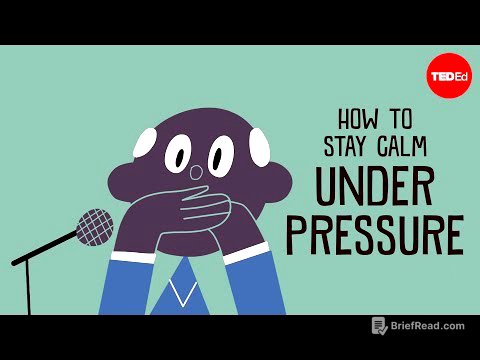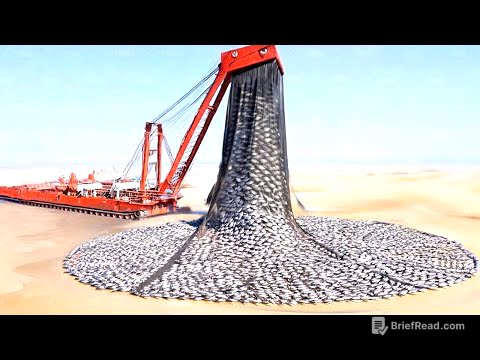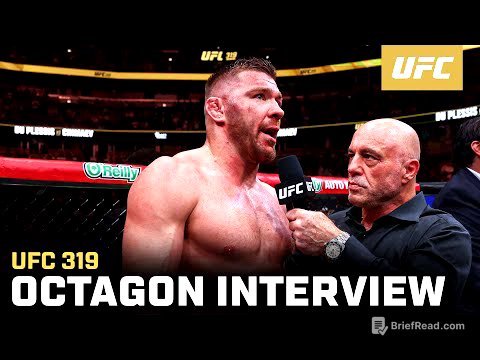TLDR;
This episode of the Afropolitan podcast features Austin O'Re, the founder of Computer Warehouse Group (CWG), who shares his entrepreneurial journey from a $35,000 startup to a publicly listed company with a $90 million valuation. He discusses the challenges and opportunities in building a business in Africa, the importance of strong partnerships, and the significance of succession planning. O'Re also touches on ethics, corporate governance, and his current focus on leadership development through the Ausso Leadership Academy.
- Building in Africa is hard but offers vast opportunities.
- Strong co-founder partnerships are crucial for success.
- Succession planning is essential for a lasting legacy.
- Redefining a billionaire by impact, not just monetary wealth.
Intro [0:00]
Austin O'Re, founder of Computer Warehouse Group (CWG), discusses his journey from a small startup in Lagos to a leading tech powerhouse across Africa. He emphasizes the importance of people and understanding that success without succession is failure. He also highlights the importance of a tripod: the rain maker or the visioner, the technology go, and someone who is looking after the money and potential investors.
Opportunities in Africa for Entrepreneurs [2:15]
Building a business anywhere is difficult, but it's harder in Africa due to immature systems and the need to build infrastructure. Customer education is also a challenge, as people are often resistant to new products or services. However, Africa offers vast opportunities for entrepreneurs in various sectors like health, education, agriculture, technology, and creative arts. The Chinese see challenges as opportunities, and Africa presents immense potential for improvement and innovation.
Starting CWG with $35,000 Seed Capital [4:55]
Austin O'Re started Computer Warehouse Group (CWG) with $35,000 raised from friends, driven by the belief that there were better ways to serve customers. The company's name was later changed from Computer Warehouse to CWG, a common practice in the technology industry.
Leaving His Job & Early Struggles of a Founder [7:00]
Leaving a job to start a business can be a lonely experience, with a sudden drop in popularity and support. Austin's wife, Shaler, was a pillar of support, acting as his secretary, HR, and partner. She played a central role in the hiring process, helping to secure talented individuals who were crucial to the company's success.
Partnering with Dell and Building Trust [9:30]
Initially, suppliers and customers were tied to Austin's previous company, but Andy Wani of Dataflex provided a price list from American Micro Computer Center (AMCC), enabling CWG to start selling. CWG sought to differentiate itself by partnering with an OEM, eventually choosing Dell because they manufactured just-in-time, reducing stockholding costs. This appealed to companies with mature computer cultures like telecoms, oil and gas, and banking and finance.
Building Nigeria’s Maintenance Culture [13:00]
CWG's focus on service, installation, and maintenance differentiated it from competitors who were primarily focused on buying and selling. The company quoted a 20% annual maintenance fee, while competitors offered only 5%, leading to initial losses until companies recognized the importance of reliable maintenance. This approach helped build a maintenance culture in Nigeria.
Telecom Expansion and VSAT Networks [15:30]
Customers requested CWG to handle local area networks (LANs), leading to the creation of a subsidiary called Digital Communications Company (DCC). The company also ventured into wide area networks (WANs) using Very Small Aperture Terminal (VSAT) technology. CWG set up its own network operating center, offering a cost-effective solution for banks compared to competitors who were selling network operating centers through the banks.
Managing FX and Currency Challenges in Africa [18:10]
CWG faced challenges with foreign exchange rates, as they were quoted in dollars by foreign suppliers but had to bill customers in naira. The fluctuating exchange rates often resulted in losses, as customers would pay at the original rate even when the naira had devalued. To mitigate this, CWG maintained its books in dollars and quoted prices that reflected the current exchange rate at the time of payment.
The Afropolitan Toast Segment [19:15]
The hosts toast to African builders, innovators, black brilliance worldwide, and African creativity.
Software Beginnings & The Banking Opportunity [20:00]
Austin discusses the software aspect of CWG's business, recalling his experience at a previous company where he recognized the potential of banking software partnerships. He sought similar opportunities at CWG, leading to a partnership with Infosys.
The Infosys Partnership and Finacle Banking Software [23:00]
After an initial lack of response from Infosys, James Agada developed a local banking system software. Later, Jabz Mutla from Infosys visited CWG, leading to a partnership. CWG created a software to query the banking on an inquiry basis. The company then secured three customers leading to Y2K.
Y2K Opportunity & Winning Three Nigerian Banks [26:00]
The Y2K scare created an opportunity for CWG to secure three major banking customers: Comet Bank, Oceanic Bank, and Standard Trust Bank (Tony Elumelu's Bank). Despite initial scaling challenges, the partnership with Infosys allowed CWG to grow rapidly and implement Finacle, a global banking software.
Scaling CWG During Banking Consolidation [28:00]
In 2005, banking consolidation in Nigeria created a demand for global standard software, benefiting CWG. The GSM revolution, partnering with MTN, also contributed to the company's growth. By 2007, CWG was generating close to $55 million per year with about 200 employees.
Raising $10M from Aureos Private Equity [31:45]
In 2005, a local private equity firm offered $2 million for 25% of CWG, which was turned down. Later, a global firm offered $8 million for 25%, but this was also declined. In 2008, during the global meltdown, Aureos Capital invested $10 million for 17% of the company.
Closing Tony Elumelu at Midnight: A Founder’s Story [34:30]
Austin shares a story about persuading Tony Elumelu to choose CWG's Finacle for Standard Trust Bank. Despite a scheduled 3 p.m. presentation, they were kept waiting until midnight. Their dedication impressed Tony Elumelu, leading to the deal and later ensuring that both organizations used Finacle after merging with UBA.
Surviving the 2008 Global Financial Meltdown [37:45]
The $10 million investment from Aureos in 2009 helped CWG weather the global financial crisis. The company had two choices: scale down organically or pursue an IPO.
Preparing CWG for IPO [40:20]
By 2012, Austin was considering leaving CWG, but Aureos reminded him of the key man risk clause in his contract. They agreed to pursue an IPO to provide a liquidity event for Aureos.
Listing CWG at $90 Million Valuation [41:10]
CWG listed on the Nigerian Stock Exchange in November 2013 with a $90 million valuation, turning the initial $35,000 seed money into $2,500 times its original value.
2,500x Return for Early Investors Explained [42:30]
The initial $35,000 investment came from six people, all of whom benefited from the IPO. The listing transformed debt stock into common stock, resulting in a significant win for early investors.
Inside Private Equity Due Diligence [44:00]
The due diligence process by private equity firms involves opening a data room with all company books, debts, and potential litigations. The PE firm hires lawyers and financial companies to scrutinize the business, with the entrepreneur typically covering these costs if the deal goes through.
Navigating the Nigerian IPO Process [47:30]
The IPO process requires partnering with an underwriting bank, but entrepreneurs should sell their own shares and not rely solely on the bank's valuation. The market ultimately determines the valuation based on the share price and number of shares.
Building Strong Co-Founder Partnerships [50:55]
Austin emphasizes the importance of discussing roles, responsibilities, and rewards early in a partnership. He highlights the contributions of his partners, Philip and James, and the need for a "first among equals." A successful entrepreneurial pursuit requires a tripod: a rainmaker/visionary, a technology guru, and someone who manages money and operations.
The “T-Person” & “H-Person” Framework for Founders [53:50]
Austin introduces the "T-person" and "H-person" framework for founders. An "I person" with sales skills needs additional knowledge in technology to become a "T person." Adding finance skills creates an "H person." Entrepreneurs should also maintain proper records, minutes, and certifications to increase leverage during negotiations with investors.
Succession Planning & Letting Go as a Founder [57:00]
Succession planning is crucial for a business to outlive its founder. Founders should avoid making themselves indispensable and allow fresh ideas and energy to take over. Austin stepped down at 51, remaining on the board as a non-executive director, using his eyes instead of his hands.
Launching the Ausso Leadership Academy [1:00:45]
After commercial success, Austin pursued his passion for shared prosperity by launching the Ausso Leadership Academy. The academy aims to scale business leaders and entrepreneurs, enabling them to grow their businesses and employ more people.
Redefining What It Means to Be a Billionaire [1:03:00]
Austin redefines a billionaire as someone who has positively influenced a billion people, rather than just possessing a billion dollars in assets. He cites Mother Teresa, Nelson Mandela, JFK, and MLK as examples of billionaires based on impact.
How to Join and Serve on a Corporate Board [1:05:30]
Many people are qualified to be on a board but suffer from imposter syndrome. Volunteering and preparing oneself are key. Board members must have sharp eyes, be willing to ask difficult questions, and understand that their allegiance is to the company, not any individual.
Ethics and Corporate Governance in Africa [1:07:55]
Board members should not pre-decide on issues before board meetings and must be independent in their decision-making. Austin shares an experience where he declined a board position because he was expected to vote in alignment with the multinational company's interests.
When CBN Banned ATMs: Lessons from Crisis [1:09:30]
When the Central Bank of Nigeria (CBN) banned ATMs outside bank branches, CWG was stuck with a warehouse full of ATMs. They partnered with ATM Consortium (ATMC) to deploy ATMs and share revenue. The CBN eventually rescinded the order, creating a huge opportunity for CWG.
Turning Setbacks into Opportunity [1:13:20]
CWG partnered with Winkorn to provide ATMs. When the CBN banned ATMs outside bank branches, CWG was stuck with a warehouse full of ATMs. They partnered with ATM Consortium (ATMC) to deploy ATMs and share revenue. The CBN eventually rescinded the order, creating a huge opportunity for CWG.
Reflections on the Abraaj Capital Collapse [1:15:30]
Austin expresses shock at the collapse of Abraaj Capital, a private equity firm that had invested in CWG. He notes that corporate governance lapses led to the collapse, but Abraaj ensured an orderly sale of their shares in CWG.
Staying Grounded After Financial Success [1:17:30]
Austin shares his philosophy of spending, saving, and investing one-third of his income and always living within his previous salary. He emphasizes that valuation is not the same as money and that expectations should be managed to avoid constant dissatisfaction.
Building the Ausso Leadership Academy for Founders [1:19:45]
Austin discusses the structure of the Ausso Leadership Academy, which focuses on practical business experience sharing. The academy brings in business leaders with proven track records to share their experiences and provide a framework for business leaders and entrepreneurs to thrive.
Scaling Through COVID & Online Leadership Training [1:21:45]
During the COVID-19 pandemic, the Ausso Leadership Academy moved its curriculum online, expanding its impact to companies in Kenya and Scotland. The academy offers open master classes and closed master classes for companies.
Legacy, Impact, and Shared Prosperity [1:25:00]
Austin's passion is to get the younger entrepreneurs the best businesses. He shares and impacts people.
Advice to Young African Entrepreneurs [1:27:30]
Austin shares that there's no point about having knowledge and not sharing it. There's no point about having solutions which nobody is impacting from.
Redefining a Billionaire by Impact, Not Money [1:29:00]
Austin is proud of the impact of CWG and the Ausso Leadership Academy. He asks himself, "Could we have done more?"
Lessons from 28-Year-Old Austin [1:31:15]
One lesson Nigeria thought Austin that no MBA could is don't rely on the structure that exists. You might have to create yours.
Closing Reflections & Outro [1:34:30]
Austin would mentor Steve Jobs because he'll take his mentorship. A book or philosophy that changed Austin's leadership lens is In search of excellence by Tom Peters. Africa will rise when we really care about our people. Austin's favorite Nigerian food or African food is plantain and jolaf rice and stew. Austin's story would like to see get told on Afropon podcast is Austin Avaru and Ernest D.









